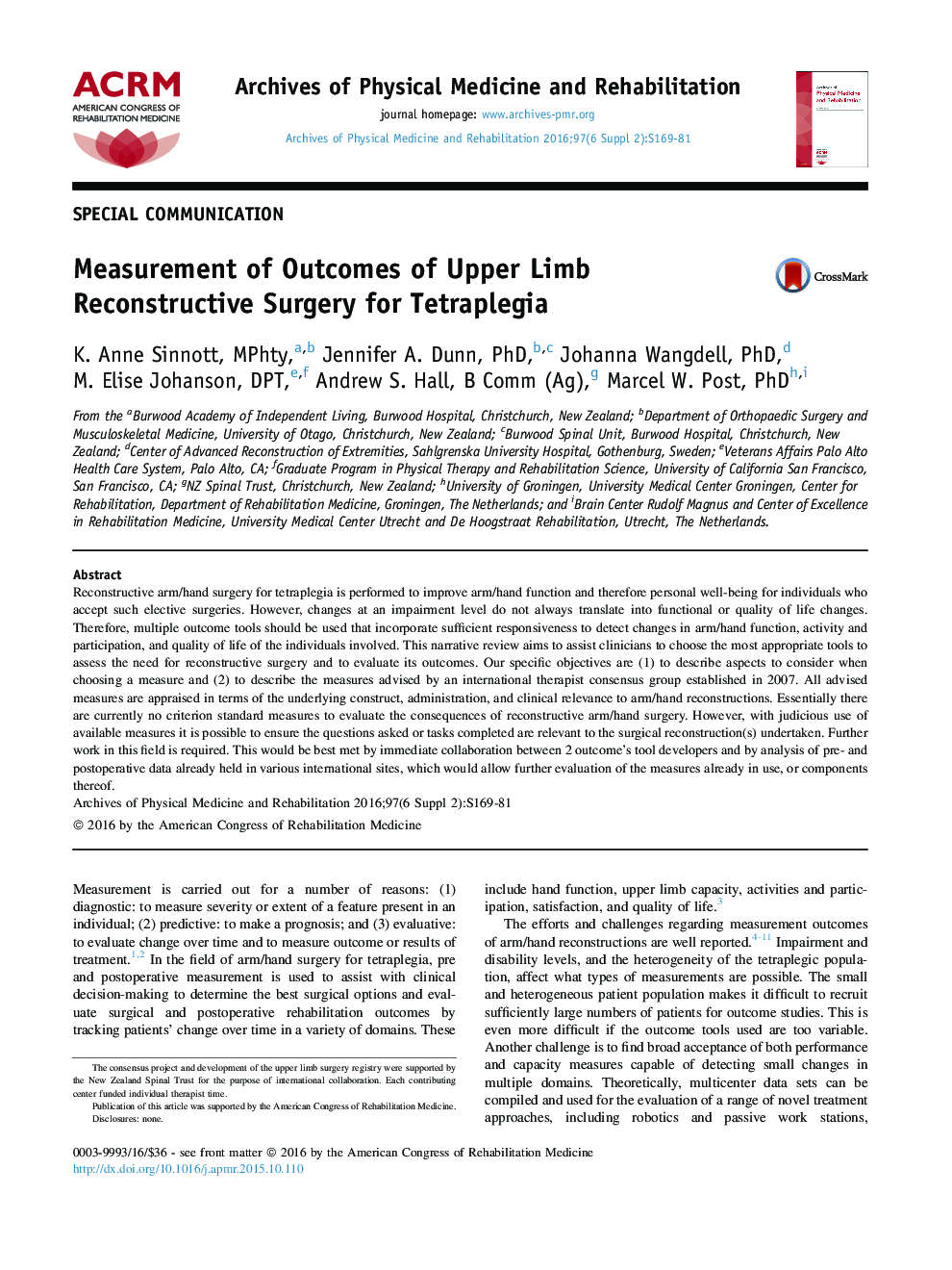| Article ID | Journal | Published Year | Pages | File Type |
|---|---|---|---|---|
| 3448002 | Archives of Physical Medicine and Rehabilitation | 2016 | 13 Pages |
Reconstructive arm/hand surgery for tetraplegia is performed to improve arm/hand function and therefore personal well-being for individuals who accept such elective surgeries. However, changes at an impairment level do not always translate into functional or quality of life changes. Therefore, multiple outcome tools should be used that incorporate sufficient responsiveness to detect changes in arm/hand function, activity and participation, and quality of life of the individuals involved. This narrative review aims to assist clinicians to choose the most appropriate tools to assess the need for reconstructive surgery and to evaluate its outcomes. Our specific objectives are (1) to describe aspects to consider when choosing a measure and (2) to describe the measures advised by an international therapist consensus group established in 2007. All advised measures are appraised in terms of the underlying construct, administration, and clinical relevance to arm/hand reconstructions. Essentially there are currently no criterion standard measures to evaluate the consequences of reconstructive arm/hand surgery. However, with judicious use of available measures it is possible to ensure the questions asked or tasks completed are relevant to the surgical reconstruction(s) undertaken. Further work in this field is required. This would be best met by immediate collaboration between 2 outcome's tool developers and by analysis of pre- and postoperative data already held in various international sites, which would allow further evaluation of the measures already in use, or components thereof.
